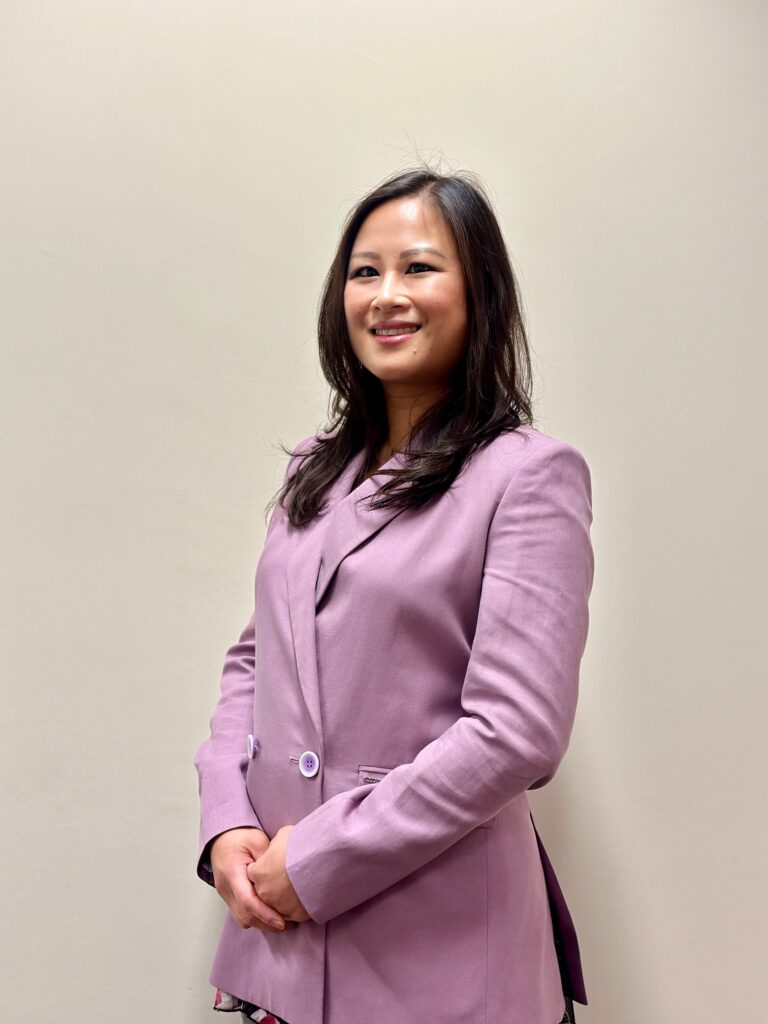Breast Cancer Awareness Month – Q&A With Dr Melissa Tan
In this Breast Cancer Awareness month of October, Dr Melissa Tan who is a consultant for Breast and Oncoplastic Surgery at Prince Court Medical Centre answers some questions that we hope can help anyone who wants to find out more about how to cope with some of the many challenges that arise when there is a diagnosis of breast cancer.

How do you approach the topic of potential breast loss or reconstruction with your
patients?
Advances in breast awareness and screening now allow for earlier cancer diagnosis, often making it possible for women to preserve their breasts through Oncoplastic surgery techniques. The choice to remove a breast hinges on several factors, including the size and number of tumors, breast shape, overall body build, and surgical considerations like achieving a cosmetically acceptable result. Genetic links account for only 5-10% of cases. If breast removal is necessary or chosen by the patient, mastectomy options with or without reconstruction are available. Reconstruction is a personal choice and comes in two main types: using implants or the patient’s own tissue, either muscle and fat or just fat, known as autologous reconstruction. Reconstruction can be immediate or delayed. While immediate is often preferred, it’s not always feasible. For those opting out of reconstruction, a range of breast prostheses can be fitted into bras or swimwear.
Can you describe the range of emotions that patients typically experience when
faced with the possibility of losing their breasts?
Women react differently to a breast cancer diagnosis and the potential loss of their breasts.
Many go through various stages of grief, not necessarily in a set order. These stages, often based on models by Dr. Kubler-Ross and David Kessler, include denial, anger, bargaining, depression, and acceptance. About 50% of breast cancer patients face depression or anxiety. Two additional, nuanced stages of grief are reflection, where patients consider the mental impact of physical changes, and emotional healing, focusing on coping with diagnosis, treatment, and life after cancer, sometimes including survivor guilt.
In your experience, how does breast loss impact a patient’s self-perception and
identity?
Patients often adopt different roles at various stages of their breast cancer journey, such as victim, survivor, warrior, ambassador for awareness, advocate for research, or even content creator sharing insights. Many join community support groups, either in-person or online, forming close friendships for mutual support.
How does your Post-Mastectomy Care Management (PCMC) support patients in
navigating the emotional repercussions of breast loss, what role do breast surgeons play in facilitating mental health support, and how do you collaborate with mental health professionals to ensure the well-being of your patients?
At Prince Court Medical Centre, we prioritize individualized care from diagnosis through recovery. We guide women in understanding their diagnosis, treatment options, and the potential short-term or long-term effects on their well-being. For those opting out of reconstruction, we offer advice on post-surgery bras and prostheses. As a breast surgeon, empathy is key. We not only recommend charity support groups but also identify patients who may benefit from counseling or psychological referrals, although psychiatric referrals are rare. We use tools like the BreastQ questionnaire to measure patient-reported outcomes pre-and post-surgery. This covers two main areas: patient satisfaction and quality of life, focusing on physical, psychosocial, and sexual well-being. This data not only helps us tailor our care but also aids in research, informing future patients about their surgical options.
Can you discuss any multidisciplinary approaches that are employed to offer
comprehensive support to patients?
Where I work, we use a multidisciplinary approach for tailored patient care. Our core team includes breast surgeons, radiologists, pathologists, and oncologists, complemented by specialists like anesthetists, psychologists, geneticists, gynecologists, and plastic & reconstructive breast surgeons. We also involve nurses, counselors, dietitians, and physiotherapists for a holistic treatment plan, aiming to encourage, educate, and empower patients throughout their breast cancer journey.
Can you share some insights on the counseling options available for patients
undergoing surgery?
Counseling is available for both diagnosed and high-risk patients. For those undergoing surgery, counseling covers pre- and post-operative expectations and involves loved ones for support. High-risk patients may consult genetic counselors for guidance on tests like BRCA1/BRCA2. If a high-risk mutation is found, patients are advised on risk-reduction strategies and early detection methods, similar to that of Angelina Jolie. Those considering risk-reducing surgery are referred to psychologists for further evaluation and support.
What measures are in place to help patients cope with the feeling of “feeling less of a woman” post-surgery?
Breast reconstruction is just one way to restore a sense of femininity. Other strategies include cosmetic treatments like eyelash and eyebrow tattooing or make-up sessions. Some prepare for hair loss with special shampoos, scarves, or wigs, and adapt their fashion styles to changing bodies. Self-love or self-care is key: engage in healthy lifestyle changes, sleep well, meditate, and do yoga or lymph therapy classes for patients with lymphoedema. Healthy dietary changes
and regular exercise with outdoor activities also contribute to overall health. Intimacy challenges, such as vaginal dryness, can be addressed with specific coping strategies to maintain spousal roles. Finally, psychological self-empowerment is crucial, often achieved by aligning actions with personal beliefs and practicing mindfulness.
How do you guide patients in rebuilding their self-confidence post-surgery?
By reassuring them that they are not alone. I encourage them to share their concerns with their trusted loved ones such as family and friends and other breast cancer patients going through similar breast cancer treatments. I suggest they read books by authors with breast cancer. I also highlight the power of positive thinking.
How can family and friends best support someone undergoing breast loss?
Practical and emotional support can make a significant difference in a patient’s experience.
On a practical level, accompanying them to medical appointments, assisting with organizing their affairs, and running errands can be invaluable. Helping them maintain their hobbies and activities is another way to offer support. Emotionally, simple gestures like phone calls, cards, notes, or texts to say you’re thinking of them can go a long way. Make it known that you’re available to listen if they wish to talk, and then ensure you’re accessible when needed. Respect their privacy and offer consistent support – before, during, and after treatment.
Are there any resources or strategies that you recommend for fostering resilience
during this time?
Resilient individuals adapt well to challenges, manage emotions effectively, and strive for quality of life. Healthcare providers can bolster this resilience by ensuring patients understand their diagnosis, fostering open communication, and providing key information.
Patients can enhance their own resilience by:
- Building strong social networks through family, friends, or support groups.
- Setting clear, achievable goals.
- Learning from past experiences.
- Staying hopeful and adaptive to change.
- Maintaining a healthy lifestyle, including exercise, sleep, and stress management.
- Proactively addressing financial challenges instead of ignoring them.
If resilience-building feels overwhelming, consulting a mental health professional can offer targeted strategies. As for personalized therapy, one example involves a single mother in her 40s diagnosed with aggressive breast cancer. She faced severe emotional turmoil, including a psychotic episode. Through collaborative efforts involving oncologists, psychiatrists, and nurses, we guided her through treatment. Using cosmetic surgery techniques, we removed the cancer while preserving and uplifting her breasts, helping her regain emotional stability and optimism.
What advancements in the field are helping to improve the holistic care of patients facing breast loss?
Breast cancer patients face a continuum of challenges from diagnosis to recovery. Post-treatment, they must adapt to new norms and manage side effects. To aid this transition, our survivorship program includes a comprehensive needs assessment checklist. Provided in a personal organizer, this tool helps patients articulate concerns across 12 key areas, such as physical, emotional, and financial needs. This structured approach allows for a tailored discussion of each patient’s unique challenges. The checklist usually covers a wide range of concerns, divided into 12 categories: Physical, Practical, Informational, Language and Cultural, Emotional, Spiritual, Social, Mental Well-being, Family and Relationships, Employment, Financial, and End-of-Life.







